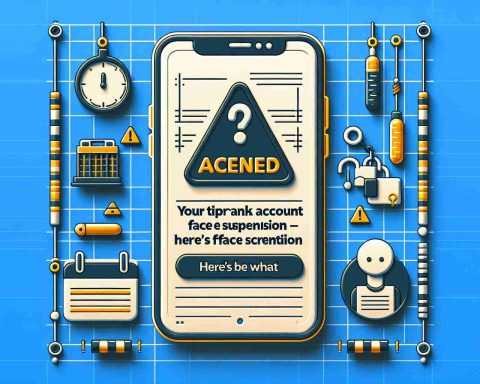The Evolution of Value Storage
In recent times, Bitcoin’s status as “digital gold” has gained significant traction, illustrating a transformative shift in how we view money and value. Traditionally, people have turned to physical gold as a reliable store of worth. However, the advent of cryptocurrencies is reshaping these long-held beliefs.
Currently, the world’s gold market boasts an impressive market capitalization of approximately $18.4 trillion, with the precious metal priced around $2,751 per ounce. Yet, this could be the dawn of a new era where digital assets like Bitcoin challenge the supremacy of gold.
The increasing adoption of Bitcoin signals a growing acceptance of virtual currencies, which offer more agility and fluidity compared to conventional assets. With its decentralized structure and potential for appreciation, Bitcoin is becoming an appealing alternative for wealth preservation.
As more investors recognize the utility of digital assets in diversifying their portfolios, the landscape of value storage is evolving. This shift suggests that the future may lean towards virtual currencies, presenting both opportunities and challenges for traditional assets like gold.
In conclusion, as Bitcoin continues to rise in popularity, it serves as a reminder that the perception of value is not static and can transform under new technological advancements. This dynamic shift could redefine how wealth is stored and perceived in our increasingly digital world.
Shifting Paradigms: The Broader Impact of Cryptocurrencies
The ascent of cryptocurrencies marks a significant inflection point with profound implications for society, culture, and the global economy. As traditional notions of wealth are challenged, the reinforcing cycle between trust and currency is being redefined. In cultures historically tethered to gold, a firm belief in tangible assets may give way to a more fluid understanding of value, opening doors to broader financial inclusion. Blockchain technology, the backbone of cryptocurrency, holds the potential to enhance transparency in transactions and reduce fraud, ultimately fostering a more equitable economic environment.
Environmental concerns also loom large as digital currencies gain traction. The energy consumption required for Bitcoin mining has raised red flags, with estimates suggesting the process consumes more electricity annually than some countries. Consequently, the cryptocurrency community is facing mounting pressure to adopt renewable energy solutions, emphasizing a critical intersection of technology and sustainability. Long-term implications may see the rise of eco-conscious cryptocurrencies, driving innovation in sustainable practices.
Looking ahead, the trajectory indicates a potential plurality in currency acceptance. As institutional players like hedge funds and multinational corporations embrace Bitcoin, it could bolster its legitimacy, prompting individuals to reassess their views on traditional assets. Thus, the evolution of value storage is not merely an economic shift; it represents a cultural metamorphosis, poised to shape future generations’ relationship with money, wealth, and investment.
Is Bitcoin Set to Outshine Gold? Exploring the Future of Value Storage
The Evolution of Value Storage
The financial landscape is undergoing a significant transformation, particularly with the rising prominence of Bitcoin as a potential competitor to traditional assets like gold. As we transition into a digital economy, the concept of value storage is evolving, inspiring new discussions about the future of wealth preservation.
Current Market Overview
As of the latest reports, the gold market maintains a robust market capitalization of approximately $18.4 trillion, with the price per ounce hovering around $2,751. However, Bitcoin’s market capitalization has also seen substantial growth, with fluctuations that attract investors looking for high returns. As of October 2023, Bitcoin’s market cap stands at around $800 billion, signaling its increasing acceptance as a digital asset.
Advantages of Bitcoin over Gold
1. Portability: Bitcoin can be transferred easily across borders with minimal fees, whereas physical gold requires secure transport and can incur high transaction costs.
2. Divisibility: Bitcoin offers exceptional divisibility; it can be subdivided down to eight decimal places, allowing for micro-transactions, unlike gold which has limits on its divisibility.
3. Decentralization: Bitcoin operates on a decentralized network, providing immunity from government interference or economic instability, which is a concern with traditional fiat currencies and tangible assets like gold.
4. Inflation Resistance: With its capped supply of 21 million coins, Bitcoin presents an appealing alternative against inflation compared to gold, whose mining supply can fluctuate.
Emerging Trends and Predictions
The increasing demand for digital assets suggests a potential shift in value storage preferences among younger generations who are more tech-savvy. Many experts predict that as more institutional investors allocate portions of their portfolios to cryptocurrencies, Bitcoin could solidify its role as a “digital gold.”
However, this transition is not without challenges. Regulatory scrutiny and market volatility remain significant concerns for potential investors. The unpredictability inherent in cryptocurrencies may deter those who prefer the stability associated with gold’s historical value.
Use Cases for Bitcoin
– Hedge Against Inflation: Many investors are turning to Bitcoin as a hedge against inflation and economic uncertainty, similar to the historical role played by gold.
– Portfolio Diversification: As financial markets evolve, Bitcoin provides a new avenue for diversifying investment portfolios, offering both risk and growth potential.
Pros and Cons of Bitcoin as Value Storage
Pros:
– Increased liquidity and ease of access.
– No need for physical storage space.
– Enhanced potential for high returns.
Cons:
– Volatility can lead to significant losses.
– Regulatory challenges and legal uncertainties.
– Security risks associated with digital wallets and exchanges.
Key Takeaways
The potential for Bitcoin to redefine the storage of value is becoming increasingly evident. While it presents innovative advantages over gold, challenges related to security, volatility, and regulation persist. As the market continues to evolve, the dynamics between Bitcoin and traditional assets like gold will undoubtedly shape the future of wealth preservation.
For more information on how cryptocurrency is transforming finance, visit Investopedia.











